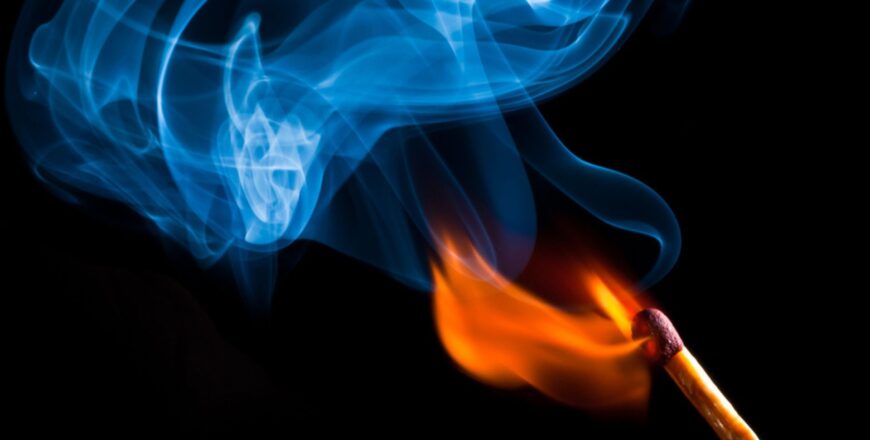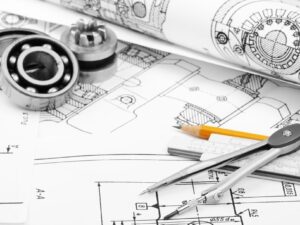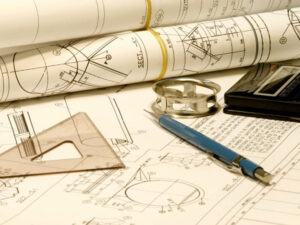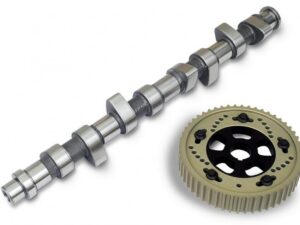ENGINEERING THERMODYNAMICS
Instructor
Hardik Prajapati
- Description
- Curriculum
- Reviews

GUJARAT TECHNOLOGICAL UNIVERSITY
AUTOMOBILE ENGINEERING (02)
/MECHANICAL ENGINEERING (19)
ENGINEERING THERMODYNAMICS
SUBJECT CODE : 213905
B.E 3rd SEMESTER
- Basic Concepts :- Microscopic & Macroscopic point of view, thermodynamic system and control volume, thermodynamic properties, processes and cycles, Thermodynamic equilibrium, Quasi – static process
- First Law of Thermodynamics:- First law for a closed system undergoing a cycle and change of state, energy, PMM1, first law of thermodynamics for steady flow process, steady flow energy equation applied to nozzle, diffuser, boiler, turbine, compressor, pump, heat exchanger and throttling process, filling and emptying process
- Second law of thermodynamics :- Limitation of first law of thermodynamics, Kelvin-Planck and Clausius statement and their equivalence, PMM2, causes of irreversibility, Carnot theorem, corollary of Carnot theorem, thermodynamic temperature scale
- Entropy :- Clausius theorem, property of entropy, inequality of Clausius, entropy change in an irreversible process, principle of increase of entropy, entropy change for non- flow and flow processes, third law of thermodynamics
- Energy :- Energy of a heat input in a cycle, exergy destruction in heat transfer process, exergy of finite heat capacity body, exergy of closed and steady flow system, irreversibility and Gouy -Stodola theorem and its applications, second law of efficiency
- Vapor Power cycles :- Carnot vapor cycle, Rankine cycle, comparison of Carnot and Rankine cycle, calculation of cycle efficiencies, variables affecting efficiency of Ranine cycle, reheat cycle, regenerative cycle, reheat – regenerative cycle, feedwater heaters,
- Gas Power cycles :- Recapitulation of Carnot, Otto and Diesel cycle, Dual cycle, Compression of Otto, Diesel and Dual cycles, air standard efficiency, mean effective pressure, brake thermal efficiency, relative efficiency, Brayton cycle, effect of reheat, regeneration, intercooling and turbine and compressor efficiency on Brayton cycle
- Properties of gases and gas mixtures:- Avogadro’s law, equation of state, ideal gas equation, Vander Waal’s equation, reduced properties, law of corresponding states, compressibility chart, Gibbs- Dalton law, internal energy; enthalpy and specific heat of a gas mixtures
Basic Concepts
-
1Introduction
-
2Microscopic and macroscopic point of view
-
3Thermodynamic system and control volume
-
4Thermodynamic properties
-
5State, process and cycle
-
6Thermodynamic equilibrium
-
7Quasi-Static process
-
8Pure substance
-
9Vapour- liquid solid phase in a pure substances
-
10Critical and triple point of pure substance
-
11p-v-T surface
-
12Work and Heat Transfer
-
13Point function and path function
-
14Temperature and zeroth law of thermodynamics
-
15Continuum
First Law of Thermodynamics
-
16Introduction
-
17First law of thermodynamics for a closed system undergoing a cycle
-
18First law of thermodynamics for a closed system undergoing a change of state
-
19Energy - a property of system
-
20Perpetual motion machine of the first kind - PMM1
-
21Non- flow process and flow process
-
22Flow process and control volume
-
23Steady and unsteady flow process
-
24Steady flow energy equation (SFEE)
-
25Engineering Application of SFEE
-
26Unsteady flow processes : filling and emptying process
-
27Flow and non-flow work
Second Law of Thermodynamics
-
28Limitation of the first law of thermodynamics
-
29Thermal energy reservoirs
-
30Heat engines
-
31Heat pumps and refrigerators
-
32Kelvin - Plank statement of second law of thermodynamics
-
33Clausius statement of second law of thermodynamics
-
34Equivalence of Kelvin- Plank and Clausius statements
-
35Comparison between Kelvin- Plank and Clausius statements
-
36Perpetual motion machine of second kind (PMM2)
-
37Carnot cycle and Carnot heat pump
-
38Carnot theorem
-
39Corollary of Carnot theorem
Entropy
-
40Introduction - Entropy
-
41Clausius theorem
-
42Entropy is a property
-
43Inequality of Clausius
-
44Entropy change for open system
-
45Reversible and irreversible process
-
46Principle of increase of entropy or change in entropy of the universe
-
47Applications of entropy principle
-
48Temperature entropy (T-S) diagram
-
49Entropy change during thermodynamic process
-
50Entropy change for pure substance
-
51Third law of thermodynamics (Nernst law)
Exergy and irreversibility
-
52Introduction to exergy
-
53Exergy ( available energy ) referred to a cycle
-
54Lost work - Exergy destruction in heat transfer process
-
55Exergy ( availability ) of closed system (non- flow process)
-
56Exergy ( availability) of steady flow open system
-
57Reversibility and irreversibility
-
58Irreversibility Gauy Stodola Theorem
-
59Applications of Gauy Stodola equation
-
60Second law efficiency or effectiveness
-
61Availability, irreversibility and second law efficiency (effectiveness) of open system
Vapour Power Cycles
Gas Power Cycles
-
71Introduction
-
72Carnot cycle
-
73Otto cycle or constant volume cycle
-
74Diesel Cycle ( Constant Pressure Heat Addition Cycle)
-
75Dual cycle or Limited pressure cycle or Mixed cycle
-
76Comparision of Otto Diesel and Dual cycles
-
77Brake thermal and relative efficiencies
-
78Brayton Cycle
-
79Actual Brayton cycle
-
80Effect of operating variables on efficiency of Brayton cycle
-
81Effect of intercooling on Brayton cycle
-
82Effect of regeneration on Brayton cycle
-
83Effect of reheating on Brayton cycle
-
84Effect of intercooling and regeneration on Brayton cycle
-
85Effect of intercooling and reheating on Brayton cycle
-
86Effect of reheating and regeneration on Brayton cycle
-
87Effect of intercooling reheating and regeneration on Brayton cycle
Properties of gases and gas mixtures
-
88Avogadro's law
-
89Equation of state
-
90Ideal gas equation
-
91Van der Waal's equation
-
92Reduced properties
-
93Law of corresponding states
-
94Compressibility chart
-
95Gibbs-Dalton Law
-
96Volumetric analysis of a gas mixture
-
97Apparent molecular weight and Gas constant
-
98Specific heat of a gas mixture
-
99Adiabatic mixing of perfect gases
-
100Gas and Vapour mixtures
Please, login to leave a review








